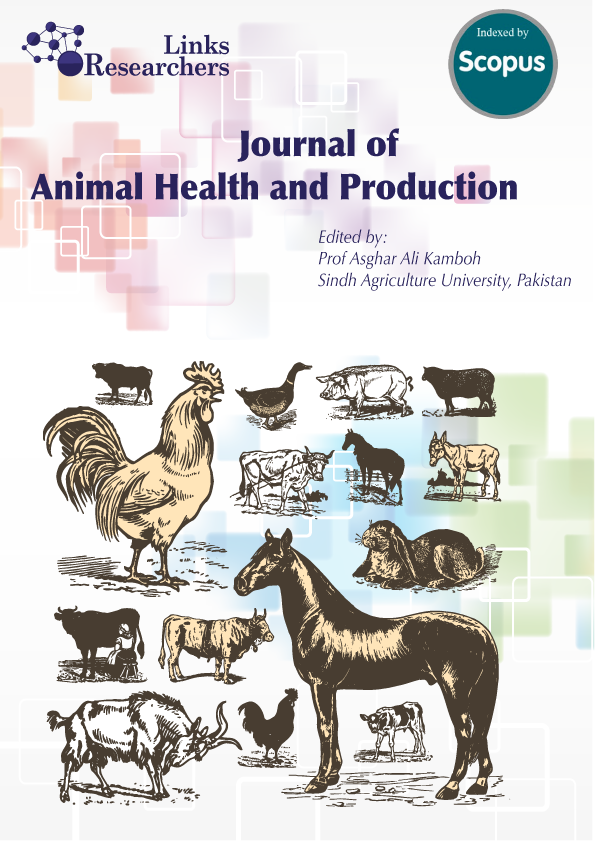Growth Performance and Nematode Infestation in Grazing Lambs: Impact of Diatomaceous Earth
Growth Performance and Nematode Infestation in Grazing Lambs: Impact of Diatomaceous Earth
Mthi S. 1,2, Ikusika O.O.1*, Washaya S.3, Mpendulo C.T.1, Nowers C.B.2
ABSTRACT
Gastrointestinal parasites cause substantial economic losses worldwide, affecting the United Nations’ food security plans due to their detrimental influences on livestock productivity. The study evaluated the effect of supplementing weaner lamb diets with diatomaceous earth (DME) on weight gain and gastrointestinal parasite load. Forty-eight Dohne merino weaner lambs weighing 31.4 ±0.55kg were randomly assigned to 1 of 4 dietary treatments: 0% DME (T1), 2% DME (T2), 5% DME (T3), 10% DME (T4) of dry matter(DM) and twelve animals were used per treatment. Animals were allowed to graze at a Kikuyu pasture and were supplemented with lamb diet at 1.5% of body weight. Bodyweight was measured weekly, while faecal samples were collected every fortnight. Faecal egg count was performed using the McMaster and modified Stoll methods, while body weight was measured using an electronic scale. Treatments had a significant difference (P<0.05) in the weight gain of lambs. Improvement in the average daily weight gain performance of lambs was also observed at 10% DME inclusion levels, followed by T1 (31.96±7.787 kg), T2 (31.86±7.787 kg), and T3 (31.5±7.787 kg), respectively. Coccidia and roundworms were the only species found in the collected faecal samples. Significant differences were observed in roundworms (P<0.05) among treatment groups, but DME did not affect coccidia parasites. Overall, diatomaceous earth improved growth performance and reduced parasitic infestation up to a 5% inclusion level.
To share on other social networks, click on any share button. What are these?






